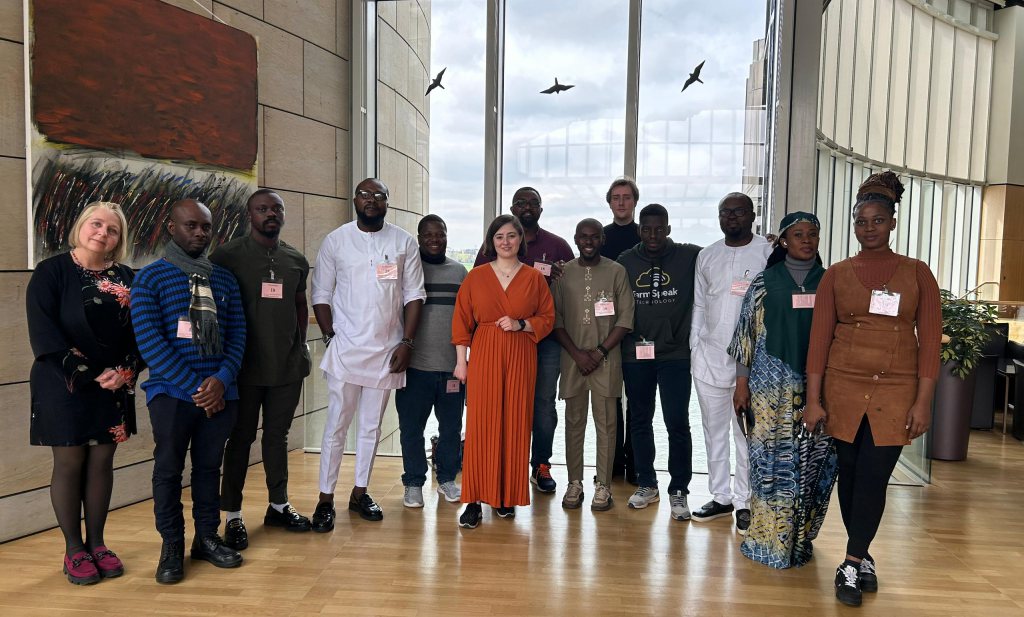Everyday, more people are being born to our world, and more food is required to sustain them - There are many mouths to eat, many stomachs to be filled with nutritious food - but only few farmers produce food. More sadly, the majority of these farmers are already old (with less strength) and youths are considerably low because the current state of the agriculture sector has been unattractive to the youth population. How do we make agriculture attractive to more youths to achieve a sustainable food system?
The future of agriculture in the developing countries is hinged on its increasing youth population as they are more innovative, open to learning and are easily embracing technologies and innovations. In the real sense, they are more attracted to new technologies and innovations that help to reduce physical activities and at the same time improve efficiency and productivity. So, to build a sustainable food system that is inclusive of the youths, discussions around adoption of new technologies and innovations must be at the forefront.
Also, there is a need to actively involve the youths in the decision making process and also leverage on appropriate knowledge transfers for the youths. Knowledge transfer is very important and could be achieved through exchange programs, mentorship programs, acceleration and incubation programs amongst others, specifically to initiate more youths into the business of agriculture (agribusiness). To achieve more, reverse mentorship can be adopted for intergenerational knowledge transfers between the older and the younger farmers (cross learning). The younger farmer is learning indigenous knowledge and age long practices that can be scaled while the older farmers are also seeing the possibility of how new technologies can help improve productivity and efficiency.
We can achieve more towards food security when there is an intergenerational knowledge transfer and solutions that can help solve our foundational problems. Also, we need to create a conducive environment for the youths to grow and strive, by acknowledging intergenerational differences (we need to develop new policies that meet current realities). We need more youths as actors in the various value chains in the agricultural sector and the best time to bring them on board was yesterday and the only time remaining is today. So, let the journey begin.
Yours-in-Service
Babatunde
Also, there is a need to actively involve the youths in the decision making process and also leverage on appropriate knowledge transfers for the youths. Knowledge transfer is very important and could be achieved through exchange programs, mentorship programs, acceleration and incubation programs amongst others, specifically to initiate more youths into the business of agriculture (agribusiness). To achieve more, reverse mentorship can be adopted for intergenerational knowledge transfers between the older and the younger farmers (cross learning). The younger farmer is learning indigenous knowledge and age long practices that can be scaled while the older farmers are also seeing the possibility of how new technologies can help improve productivity and efficiency.
We can achieve more towards food security when there is an intergenerational knowledge transfer and solutions that can help solve our foundational problems. Also, we need to create a conducive environment for the youths to grow and strive, by acknowledging intergenerational differences (we need to develop new policies that meet current realities). We need more youths as actors in the various value chains in the agricultural sector and the best time to bring them on board was yesterday and the only time remaining is today. So, let the journey begin.
Yours-in-Service
Babatunde
Related



